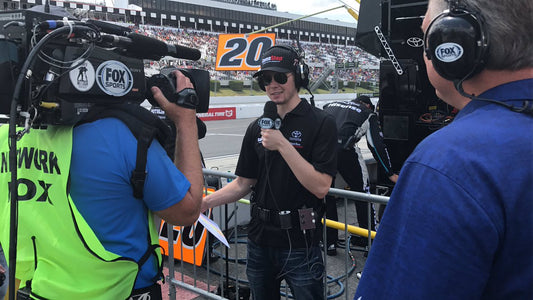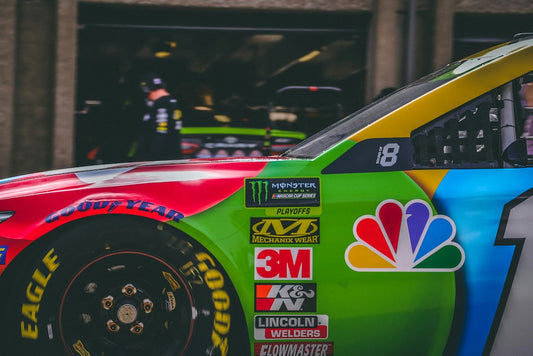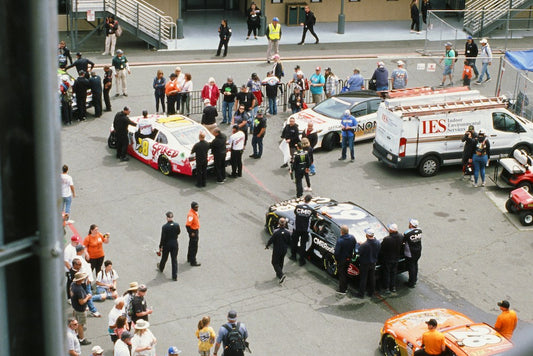NASCAR's Sponsorship Landscape: Evolution and New Prospects

NASCAR has a massive following and has become an integral part of American culture, with millions of fans attending races and watching them on television. Sponsorships play a crucial role in the success of NASCAR. They provide financial support to the teams, drivers, and the sport as a whole. Without sponsorships, it would be challenging for teams to cover the significant costs associated with racing, such as car development, travel expenses, and salaries.
Over the years, the sponsorship landscape in NASCAR has experienced significant changes. Traditional sponsors, such as Coca-Cola and FedEx, have been joined by non-traditional sponsors from various industries. Additionally, the declining TV viewership and shifting consumer habits have presented new challenges for sponsors. However, these changes have also created new opportunities for brands to engage with a wider audience.
Traditional NASCAR Sponsorships
Traditional NASCAR sponsorships typically involved companies from industries directly related to the sport, such as automotive, energy drinks, and automotive parts. These sponsors would often have their logos prominently displayed on the cars and drivers' uniforms.
Traditional sponsorships have played a crucial role in NASCAR's popularity and economic success. By aligning their brand with a popular sport like NASCAR, companies can reach a large and dedicated fan base. Sponsors benefit from increased brand exposure, customer loyalty, and the opportunity to engage with fans at races and events.
Examples of traditional NASCAR sponsors include Coca-Cola, which has a longstanding partnership with the sport, and FedEx, which sponsors the Joe Gibbs Racing team. These companies have leveraged their sponsorships to build brand awareness and engage with fans on a deeper level.
Evolution of NASCAR Sponsorships
In recent years, there has been a noticeable shift towards non-traditional sponsors entering the world of NASCAR. These sponsors come from industries that are not typically associated with the sport, such as entertainment, technology, and fashion. This shift reflects the changing marketing strategies of companies and their desire to reach new audiences.
One notable example of a non-traditional sponsor in NASCAR is the ownership team of Michael Jordan and Pitbull. They co-own the 23XI Racing team, which competes in the NASCAR Cup Series. Their involvement has brought new attention to the sport and attracted fans who may not have previously been interested in NASCAR.
NASCAR has seen an influx of sponsors from various industries, including technology, food and beverage, and telecommunications. Companies like Microsoft, Toyota, and Monster Energy have recognized the value of associating their brands with NASCAR and have become key sponsors in the sport.
The diversification of sponsors has had a positive impact on the sponsorship base and fan base of NASCAR. It has allowed the sport to attract new sponsors and engage with different demographic groups. This diversification has contributed to the overall growth and sustainability of NASCAR.
Challenges in the Changing Landscape of NASCAR Sponsorships
NASCAR has experienced a decline in TV viewership in recent years. This can be attributed to various factors, including changes in television viewing habits, increased competition from other sports, and a shift in consumer preferences for digital media.
The decline in TV viewership has presented challenges for sponsors who rely on exposure during races to reach their target audience. Sponsors now need to explore alternative ways to engage with fans and ensure that their brand is visible to a wider audience.
Consumer habits have shifted significantly in recent years, with many people now consuming sports and entertainment content through digital platforms and social media. This has resulted in a more fragmented media landscape and increased competition for viewers' attention.
Sponsors need to adapt their strategies to meet the changing habits of consumers. They must find innovative ways to connect with fans through digital platforms, social media, and experiential marketing. This includes creating engaging content, leveraging influencers, and embracing emerging technologies.
The Evolving Role of Brands in NASCAR Sponsorships
Digital media has played a significant role in shaping the demographics of NASCAR fans. Younger generations, in particular, are more likely to engage with the sport through online platforms, streaming services, and social media. This has led to a more diverse and tech-savvy fan base.
To reach a wider audience, brands are adapting their NASCAR sponsorships to align with the interests and values of younger consumers. They are leveraging digital platforms, creating interactive experiences, and collaborating with influencers to build brand loyalty and engage with fans on a more personal level.
Brands are increasingly incorporating technology into NASCAR sponsorships to enhance the fan experience. This includes virtual reality (VR) and augmented reality (AR) experiences, interactive apps, and real-time data analytics. These technologies provide fans with a more immersive and engaging experience during races.
Toyota and Microsoft have partnered to bring innovative technology to NASCAR. They have developed a real-time data analytics platform that provides fans with insights into the race, driver performance, and team strategies. This partnership demonstrates the potential of technology to transform the fan experience and create new sponsorship opportunities.
New Opportunities in NASCAR Sponsorships
Despite the challenges faced by NASCAR, there are still significant opportunities for growth in sponsorships. As the sport continues to evolve and attract new fans, companies from different industries will see the value in partnering with NASCAR to promote their brands and connect with consumers.
Brands are increasingly aligning their sponsorships with social and environmental causes. They recognize the importance of corporate social responsibility and the positive impact it can have on their brand image. NASCAR sponsorships provide a platform for companies to raise awareness and support causes that resonate with fans.
Virtual and augmented reality technologies offer exciting possibilities for NASCAR sponsorships. Brands can create immersive experiences that allow fans to virtually attend races, explore the pits, and interact with drivers. These technologies can also be used to deliver targeted advertising, personalized content, and exclusive behind-the-scenes access.
Conclusion
The sponsorship landscape in NASCAR has undergone significant changes in recent years. Traditional sponsors have been joined by non-traditional sponsors from various industries, and the sport has faced challenges such as declining TV viewership and shifting consumer habits.
These changes have both positive and negative implications for the sport and its sponsors. While the evolving sponsorship landscape presents new opportunities for growth and engagement, it also requires sponsors to adapt their strategies to meet the changing preferences of fans.
The future of NASCAR sponsorships looks promising. As the sport continues to innovate and attract new fans, there will be increasing opportunities for brands to align themselves with NASCAR and leverage its wide reach. By embracing emerging technologies, engaging with diverse audiences, and supporting social and environmental causes, sponsors can ensure their NASCAR sponsorships remain relevant and impactful.





